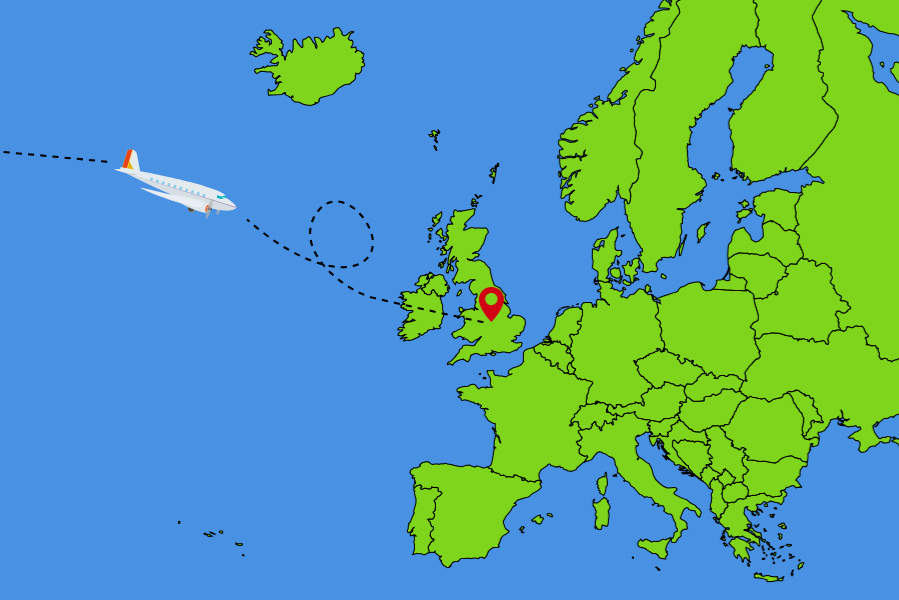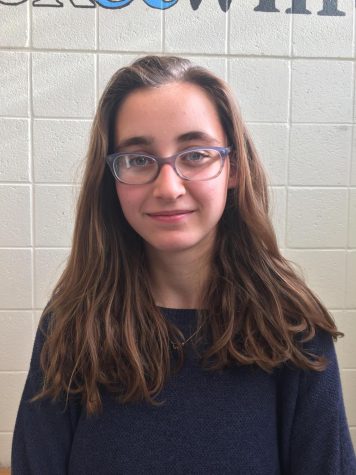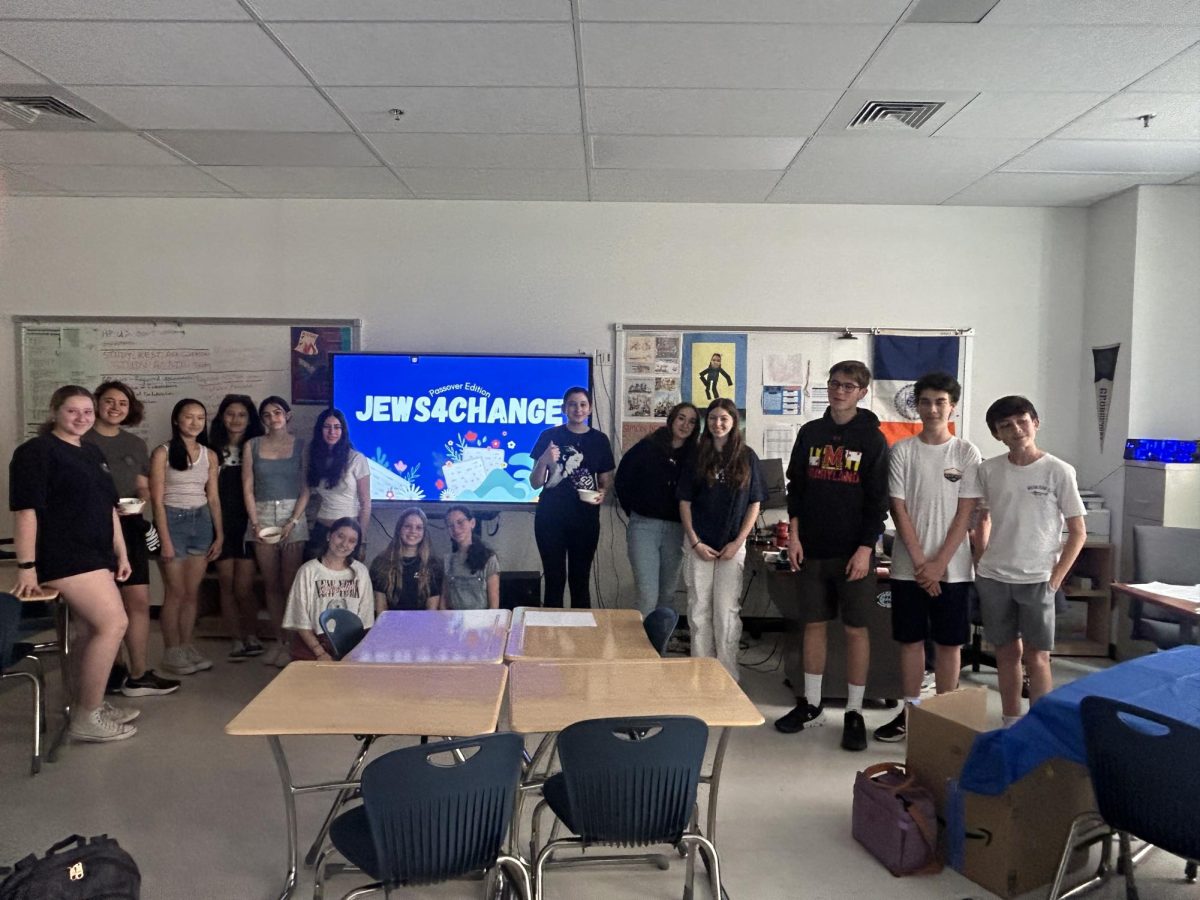Junior, sophomore look to transfer to England boarding schools next year
April 8, 2019
When sophomore Zoe Tockman walked onto the campus of Sevenoaks School in Kent, England, this past October, she was hit by a feeling of nostalgia. For four years, the campus had been her home—until her family moved to Bethesda last year. But when her dad told her they were relocating again to Texas this upcoming fall, Tockman seized on the opportunity; next year, she’ll transfer back to Sevenoaks as a boarding student.
Sevenoaks is a day and boarding school for 11 to 18-year-old students. Tockman, who lived locally, chose to be a day student when she first attended but is excited to be a boarder this time around. She is transferring back to the school next year because it feels like home, she said.
“Returning to a school that I love just as much as Whitman is a chance I never thought I’d get,” Tockman said. “I know that Sevenoaks is the right path for me.”
Two Whitman students are transferring to boarding schools in the U.K. next year. Along with Tockman, junior Michael Hallward-Dremier is transferring to a boarding school in Wales.
Although Tockman had already been a Sevenoaks student, she had to re-apply for the program for next year. The application featured a four-to-five page personal statement, one teacher recommendation and a variety of in-person tests she traveled to England for. The tests included entry exams in English, math and Chinese, as well as a critical thinking test that judged her decision-making process and ability to come up with solutions on the spot, she said.
The entire application process took nearly a year. Tockman started studying for the entry exams last January, officially applied in August, took the exams in October and got accepted in December.
While Tockman is excited to return to England, she said she’s had invaluable experiences at Whitman.

“Obviously, I really wanted to go [to Sevenoaks]. I absolutely love that school, and I love the friends I’ve made there,” Tockman said. “But, Whitman has been a really unique place for me to experience an American high school, and I’ll miss the football games here that they don’t have there.”
Hallward-Dremier has been at Whitman for three years and is transferring to the United World College of the Atlantic, or UWC Atlantic College. Although he’s lived in Bethesda his whole life, he’s half-Canadian and has a dual-citizenship, which has lead to an interest in international relations, he said.
Hallward-Dremier was drawn to the UWC Atlantic College because of its unique focuses on sustainability, world peace and diversity. He hopes to work for Doctors Without Borders once he graduates, and the school provides a specific program to prepare him for this.
“This school spoke to me compared to other boarding schools,” Hallward-Dremier said. “I was able to take two science classes, and the school had a lot of different international focuses.”
Hallward-Dremier applied to the school at the end of August and was accepted Nov. 30. To apply, he had to answer eleven short answer questions reflecting his interests, and he flew to Frankfurt for an interview. The entire interview process took ten hours, during which Hallward-Dremier and thirty other applicants practiced leadership skills and team bonding through group activities, had individual, 15-minute interviews and were assigned a 15-minute project called “The Better World Project,” in which each student had to create a solution to a current crisis.
Both Tockman and Hallward-Dremier’s schools are taught using the IB program, an internationally employed curriculum emphasizing interdisciplinarity and critical thinking skills. Classes are also taught in two separate levels: higher-level courses—essentially the equivalent of American APs—which are accepted by colleges for credit, and standard-level courses. Tockman plans to study higher-level English, history and geography and standard-level math, biology and chinese. Dremier will be taking higher-level biology, Spanish and math and standard-level English and physics, as well as a humanities class in which he will choose between studying world politics or global religions, he said.
The IB program is widely used in U.K. schools. Educator Katy Ricks became the headmaster of Sevenoaks in 2002 and introduced the IB program to the school in 2006. In an interview with “The Independent,” Ricks said that the program unifies staff and students.
“It has put a spring into the step of both students and staff,” Ricks said in the interview. “Now everyone is part of the same outcome. It’s one diploma, not separate departments.”
Both schools have close-knit learning environments to support their students. The UWC Atlantic College has only 35 teachers and 350 students across four grades, who come from 90 countries, according to the school’s website. Sevenoaks has around 1,080 students, spread over six grades, with an average class size of fewer than 20 students. Tockman said she looks forward to her new classes.
“Although they cover a broad range of topics, they go really in-depth, and if I fall behind or don’t understand some things, most of the teachers live on campus so they can tutor and help,” Tockman said.
Although Hallward-Dremier and Tockman are nervous to live alone, both schools provide unique living environments.
“UWC is your stereotypical British boarding school: it’s in a castle like Hogwarts, it has a huge garden and it overlooks a cliff,” Hallward-Dremier said. “It’s a place where everybody was enjoying themselves and there were a lot of things to do.”
Because both schools are highly international, both Hallward-Dremier and Tockman are excited to immerse themselves in different cultures, they said.
The pair will graduate from their respective schools in 2021. While they don’t know yet if they will attend European colleges after graduating, they hope to gain a better understanding of an international education.
“Going to boarding school will make me more responsible and independent, which is great for transitioning to college,” Tockman said. “While the workload here is much more intense, I’m excited to push my boundaries and challenge myself a little more.”









EzySchooling • Jan 19, 2023 at 1:18 am
Boarding schools are an incredible opportunity to experience the world and learn the importance of self-reliance and independence. I’m sure that both Michael and Zoe will learn invaluable lessons in their new schools and gain a better understanding of an international education. I’m sure the experience will shape them into well-rounded individuals and prepare them for college. At the same time, I’m sure they will miss the American culture and traditions they have grown up with and will be returning to. Best of luck to them both!